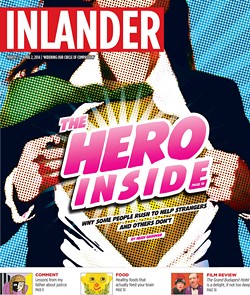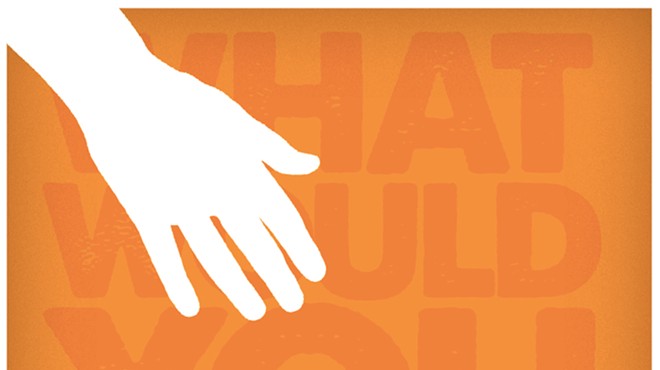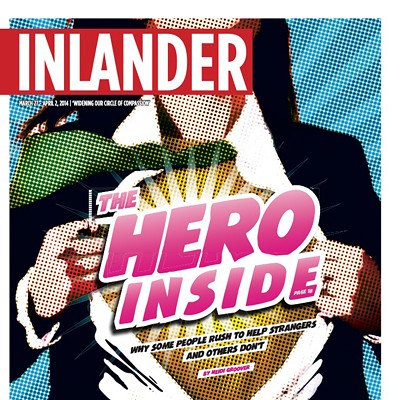Sunday, March 30, 2014
Why we wrote this week's cover story and what to read next
This week's cover story was born of a tragedy you've probably heard about by now. Last month, a 55-year-old homeless man named Don Foster was hit by an SUV on Mission Avenue. The driver of the SUV left. Then, at least two more vehicles hit Foster and also left. By the time police arrived, the scene was gruesome and the unanswered questions were many.
You and I probably had the same reaction: How could someone do that? How could you leave a man to die? When this story made the rounds in local media, the comments sections were full of the same sentiment. Everyone, it seemed, had an opinion about what they would or have done and what sort of justice they thought the drivers who hit Foster deserved.
Even the officers investigating the case were left wondering.
"Multiple people [were] involved in it and didn't take the responsibility," Officer Paul Taylor told me. "I don't think frustrating would be a strong enough word to describe how somebody could do that to another human being."
(Police are still investigating the case and say it's a top priority. If you have information, call Crime Check at 456-2233.)
The Spokesman's Sean Vestal wrote a moving column — "As man dies in roadway, no one stops" — about the victim, urging that his anonymous death not be all we knew about Don Foster.
The whole event, and others like it across the country, sticks with us for the big questions it asks, and those are the questions I attempt to take on in this week's story. What causes us to help each other sometimes and leave each other helpless other times? Are we hardwired to be kind, or are we in a battle against our deepest tendencies toward selfishness?
The answers are complex and we're often not very good at predicting what we would or wouldn't do in any given situation. In one study, David Lishner, a professor and researcher at the University of Wisconsin-Oshkosh, described someone in need to a group of research participants. When asked whether, if there was some opportunity to help, about 80 percent of participants said they would. When another group was given an actual, concrete opportunity to help in the same situation, just 30 percent volunteered.
We're certainly not the first to ask these questions. In fact, science has been wrestling with this for a long time. If you're interested, check out Radiolab's "The Good Show," Richard Dawkin's theory of "The Selfish Gene," any of the many meditations on Kitty Genovese's death, this exploration of whether we can build a more empathic civilization or this heartbreaking Washington Post story about a woman hit by multiple drivers on the Beltway near Washington, D.C., which also explored these questions.
In reporting on the psychology and biology behind helping behavior, I found a fascinating range of stories and science on the issue. I hope they'll get you thinking too. But in the end, an equally big question remains: If we can understand empathy/compassion/kindness, can we encourage it?
Emma Seppälä from Stanford's Center for Compassion and Altruism Research and Education believes we can. By setting an example for others, she says we can make compassion contagious. Here in Spokane, start by exploring local volunteering opportunities or learning CPR and signing up for the Spokane Fire Department's PulsePoint app to be notified when someone nearby is experiencing cardiac arrest. Pick up litter, talk to a stranger. The bottom line: Kindness is not out of your reach.
Read "What Would You Do?" here. Send feedback to [email protected] or reach me at [email protected].



















